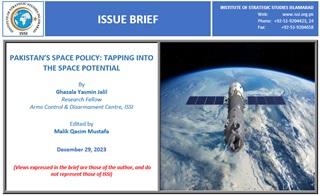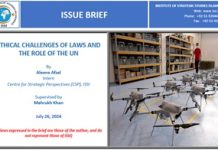On December 13, 2023, the caretaker federal cabinet approved Pakistan’s first space policy under which international companies would be allowed to provide communication services through low-orbit communication satellites. Information Minister Murtaza Solangi said that under this policy, Pakistan would also establish a space regulatory regime according to international standards. Ultimately, it aims to develop and enhance Pakistan’s space industry, promote international collaboration, and strengthen domestic capabilities in space science and technology.[1]Today, tapping space potential is vital for both military and civilian use. Satellites play a vital role in every facet of life from navigation, agriculture, urban planning, disaster management, water resource management, health, and industry. It plays an important role in a nation’s socio-economic development. It can also play a role in the promotion of UN Sustainable Development Goals. Most of all, it can be a lucrative way to boost a country’s economy. According to one estimate, global space economy in 2020 was worth $447 billion.[2] Despite having a modest space programme, Pakistan is increasingly leveraging its space-based assets to achieve sustainable development goals and socio-economic development. It is thus important to explore what the Space Policy is, what it means for Pakistan’s space programme and its potential to tap into socio-economic benefits of outer space.
Home ISSI Publications Articles Issue Briefs Issue Brief on “Pakistan’s Space Policy: Tapping into the Space Potential”
















